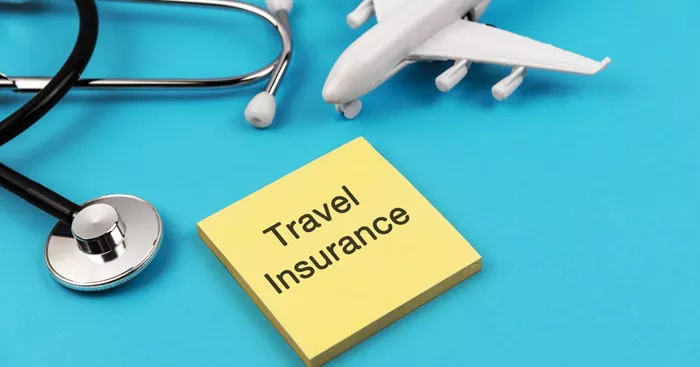1. Introduction
Traveling is an exciting adventure, but it comes with inherent risks, especially when it involves visiting new countries with different healthcare systems. Travel medical insurance is designed to cover medical emergencies that may arise while you are away from home. This article delves into the importance of travel medical insurance, what it covers, and whether it is necessary for your travel plans.
2. Understanding Travel Medical Insurance
2.1. What is Travel Medical Insurance?
Travel medical insurance is a specialized insurance policy that provides coverage for medical expenses incurred during your travels. This can include hospital stays, medical treatments, and emergency evacuations, among other medical-related expenses.
2.2. Key Features of Travel Medical Insurance
Emergency Medical Coverage: This is the primary feature, covering hospital bills, physician fees, and emergency services.
Emergency Evacuation: If you need to be transported to a medical facility, this coverage will pay for the evacuation.
Repatriation of Remains: In unfortunate cases of death, this coverage assists in transporting your remains back home.
Trip Interruption: If you must return home early due to a medical emergency, this can cover some of the related expenses.
3. Why You Should Consider Travel Medical Insurance
3.1. Health Risks Abroad
Traveling can expose you to health risks that you might not face at home, including unfamiliar diseases and limited access to quality healthcare. Travel medical insurance ensures you have access to necessary medical services without the burden of high out-of-pocket costs.
3.2. Different Healthcare Systems
Healthcare systems vary significantly from country to country. In some places, medical care can be prohibitively expensive for tourists. Having travel medical insurance protects you from the financial risks associated with unexpected healthcare needs.
3.3. Adventure Activities
If your travel plans include adventure sports or activities, the likelihood of injury increases. Travel medical insurance can cover medical treatment related to these activities, which may not be covered by standard health insurance.
4. What Travel Medical Insurance Covers
4.1. Medical Expenses
Coverage typically includes hospital stays, outpatient care, emergency surgeries, and prescription medications.
4.2. Emergency Evacuation and Repatriation
This includes costs for transportation to a medical facility and, if necessary, returning to your home country for treatment or repatriation of remains.
4.3. Pre-existing Conditions
Some policies offer coverage for pre-existing conditions, but this often requires purchasing the insurance soon after making travel arrangements.
5. What Travel Medical Insurance Does Not Cover
5.1. Routine Medical Care
Travel medical insurance is not designed for routine check-ups or preventive care, such as vaccinations.
5.2. Non-Emergency Situations
Policies typically do not cover non-emergency treatments or procedures that can wait until you return home.
5.3. High-Risk Activities
Certain high-risk activities may not be covered unless you purchase additional riders or specialized coverage.
6. Who Needs Travel Medical Insurance?
6.1. International Travelers
If you are traveling outside your home country, especially to regions with high medical costs, travel medical insurance is highly advisable.
6.2. Individuals with Pre-existing Conditions
Those with chronic health issues should consider travel medical insurance to ensure they have access to care should complications arise.
6.3. Adventurous Travelers
Travelers engaging in activities such as skiing, scuba diving, or mountain climbing should have insurance that covers related injuries.
7. How to Choose Travel Medical Insurance
7.1. Assess Your Needs
Consider your health status, travel destination, and planned activities to determine the level of coverage you require.
7.2. Compare Policies
Obtain quotes from various providers and compare their coverage options, limits, and exclusions. Look for reviews to gauge customer satisfaction.
7.3. Read the Fine Print
Before making a purchase, thoroughly read the policy documents to understand what is included and excluded.
8. Cost of Travel Medical Insurance
8.1. Factors Affecting Cost
The cost of travel medical insurance can vary based on several factors, including age, health status, destination, and duration of travel.
8.2. Average Premiums
On average, travelers can expect to pay anywhere from 4% to 10% of their total trip cost for travel medical insurance.
9. Common Misconceptions About Travel Medical Insurance
9.1. “My Regular Health Insurance is Enough”
Many people believe their regular health insurance covers them while traveling. However, this is often not the case, especially for international travel.
9.2. “Travel Insurance is Expensive”
While costs can vary, travel medical insurance can be quite affordable,especially when compared to potential medical bills abroad.
9.3. “I Don’t Need Insurance for Short Trips”
Even short trips can lead to unexpected medical expenses. It’s always wise to have coverage, regardless of trip length.
10. Steps to Purchase Travel Medical Insurance
10.1. Research Providers
Start by researching reputable travel insurance providers known for their customer service and reliability.
10.2. Obtain Quotes
Request quotes from multiple insurers to compare prices and coverage options.
10.3. Purchase Early
Buy your travel medical insurance soon after booking your trip to maximize coverage benefits.
11. Filing a Claim
11.1. Gather Documentation
In case of a medical incident, keep all documentation, including medical records, receipts, and any relevant information.
11.2. Contact Your Insurer
Notify your travel insurance provider as soon as possible to initiate the claims process.
11.3. Follow Up
Keep track of your claim’s progress and follow up with your insurer if you encounter delays.
12. Conclusion
Travel medical insurance is a vital consideration for anyone planning a trip, especially when traveling abroad. It offers essential protection against unexpected medical expenses, ensuring that you can seek the care you need without financial strain. By understanding your needs, comparing options, and purchasing early, you can travel with confidence and peace of mind. Always remember: it’s better to have it and not need it than to need it and not have it.
This outline provides a structured approach for an extensive article on travel medical insurance. If you need additional details or specific sections expanded, let me know!





















